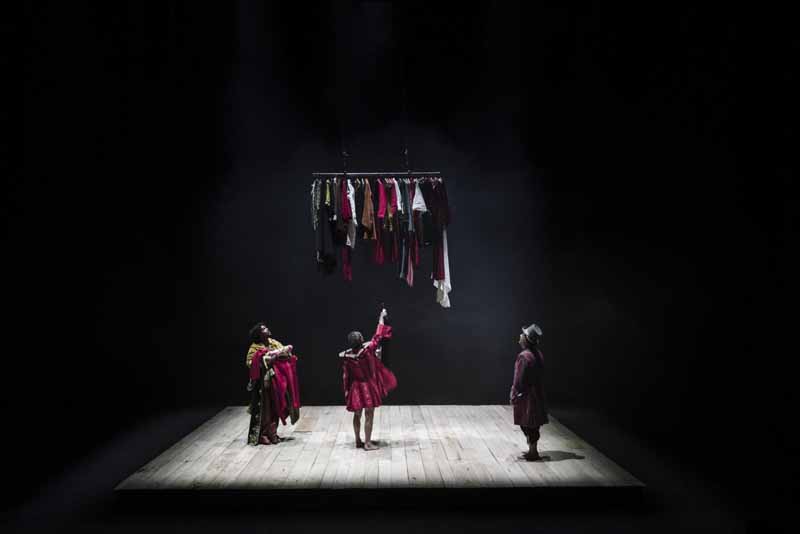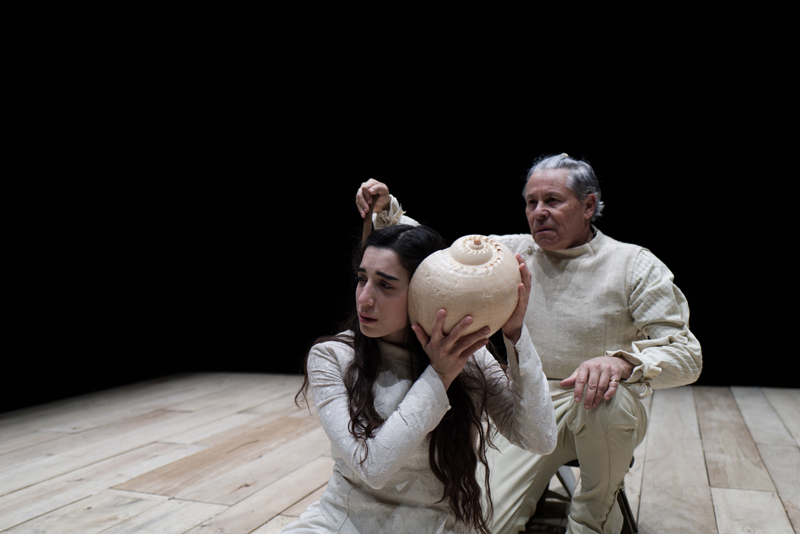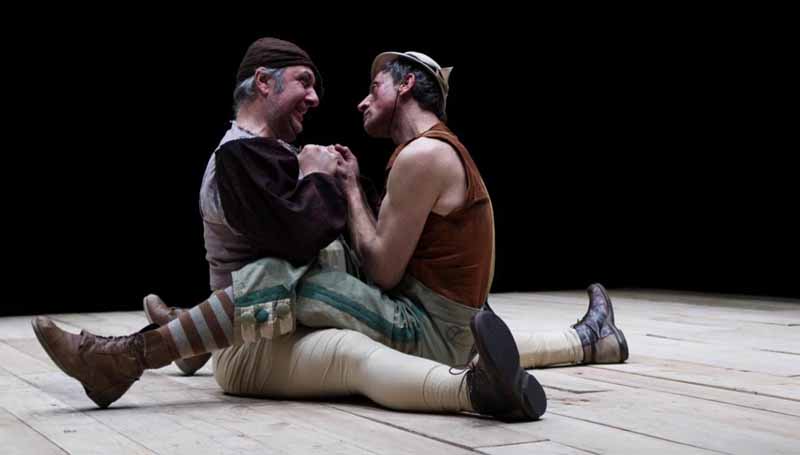“The Tempest”, Piccolo Teatro Milan
Maggie Rose in Lombardy
2 December 2022
In November I caught Shakespeare’s The Tempest at Milan’s Piccolo Teatro, in a production by Alessandro Serra. It seems to me that more than many other plays in the Shakespeare canon, this tragi-comedy lies open to an infinite number of interpretations.

The ensemble.
Photo credit: Alessandro Serra.
In 1610 and 1611 when Shakespeare wrote it, he almost certainly had in mind the travels of his contemporaries who were venturing overseas to discover the treasures and pitfalls of the New World. In 1609 there was a real-life tragedy when several Englishmen on a trip to Virginia died, inspiring Shakespeare to write his play in which a shipwreck maroons Prospero, the exiled Duke of Milan, and his daughter Miranda on a far-flung island somewhere in the Mediterranean.
In his director’s notes, Serra leaves us in no doubt as to his interpretation of Shakespeare’s final work, “The Tempest is a hymn to the theatre deploying theatre itself, whose magical power resides in the unique and unrepeatable opportunity to reach a metaphysical realm, thanks to the antics of a company of players who tread the boards, with very few stage properties and a pile of patched costumes … human beings will always feel nostalgia for theatre since it is the only place left, where they can demand their right to have access to magic”
To achieve his goal, this multi-faceted practitioner takes almost total control of the production, directing, adapting and translating as well as designing the set, lighting, sound and costumes, all of which highlight the elements of theatrical illusion, theatricality and magic that are likewise a leitmotif in Shakespeare’s tragicomedy.

Photo credit: Alessandro Serra.
The opening scene presents us with a stunning storm, during which Ariel (Chiara Michelini) in a vibrant dance manages to embody those natural elements so ferociously unleashed. Serra, moreover, also ‘paints’ some magnificent stage pictures, with chiaroscuro effects reminiscent of Caravaggio.
The episode, when Ariel, on Prospero’s orders, conjures up a banquet, only to make it disappear before the Royals can eat anything, was among these. The Neapolitan servants, Trinculo and Stephano, were also well conceived; their Commedia dell’arte antics, proving hilarious.
However, I was left feeling that the production does not chime as it could in our contemporary world. Doesn’t Shakespeare explore a brutal clash between Western civilization and an island culture, embodied in the conflict between Prospero, Duke of Milan and Caliban, the only native on the island?
The fact that Caliban (Jared McNeill) comes over as being not too intelligent, while Prospero’s role is reduced (Serra’s adaptation lasts 90 minutes compared to the usual running time of over three hours) takes much of the power out of their struggle.
Caliban, the crafty instigator of a scheme in which he involves Trinculo and Stefano to overthrow Prospero, likewise, loses the sinister revengeful side, overshadowed as it is by the sometimes camp comedy of the two Neapolitans. And lastly, aren’t Prospero and Miranda two displaced individuals who suffer deeply from their exile far from Milan? The production it seems to me is beautifully honed while lacking the stuff of tragedy.









